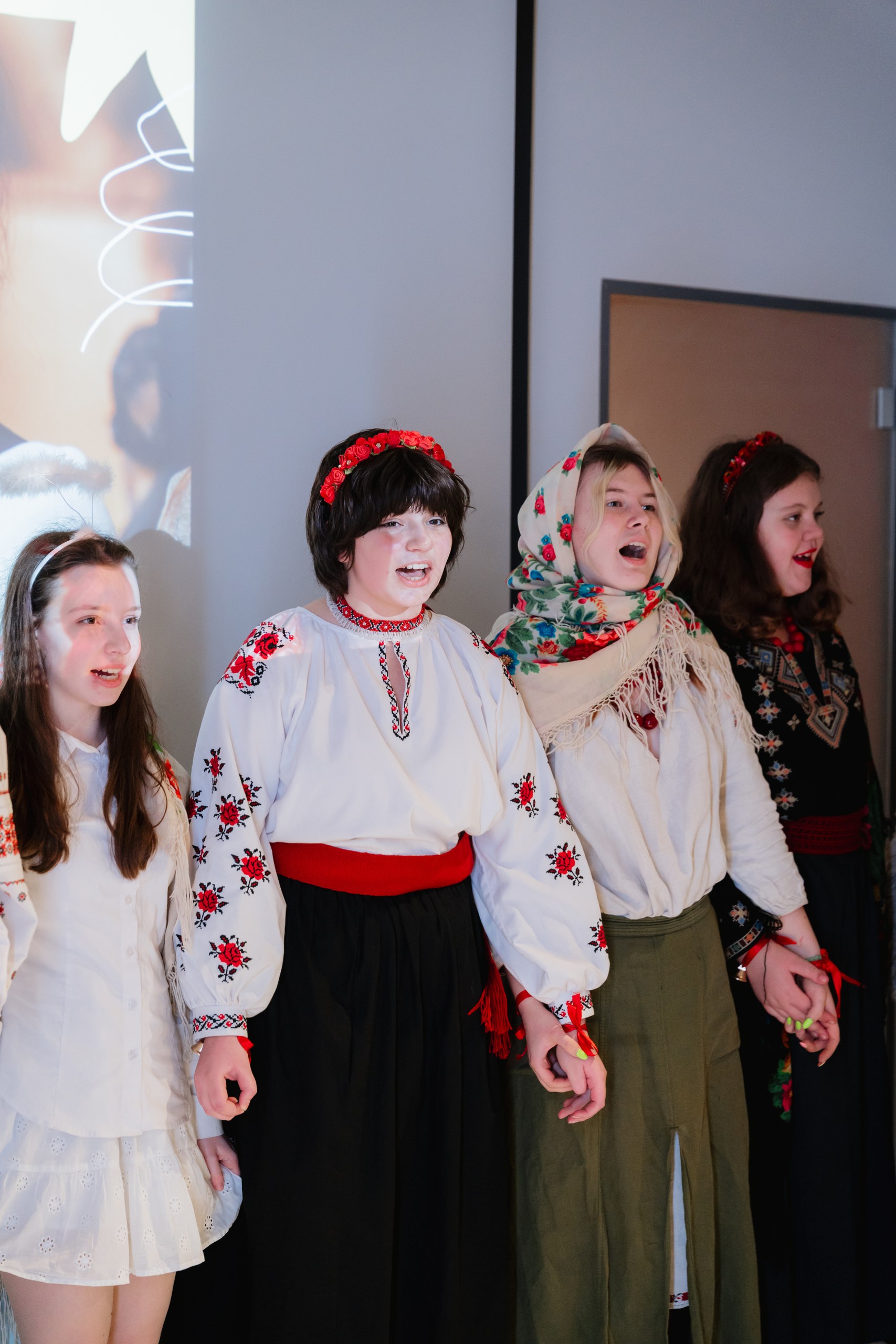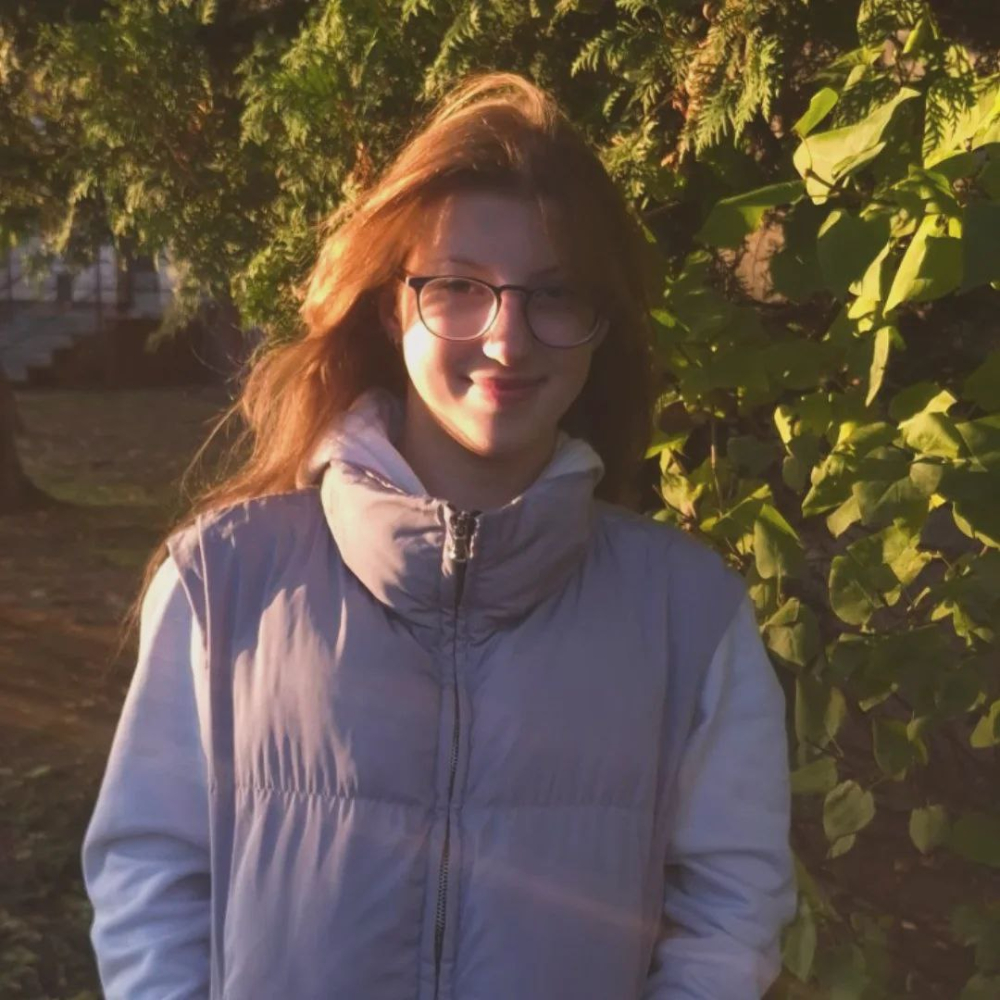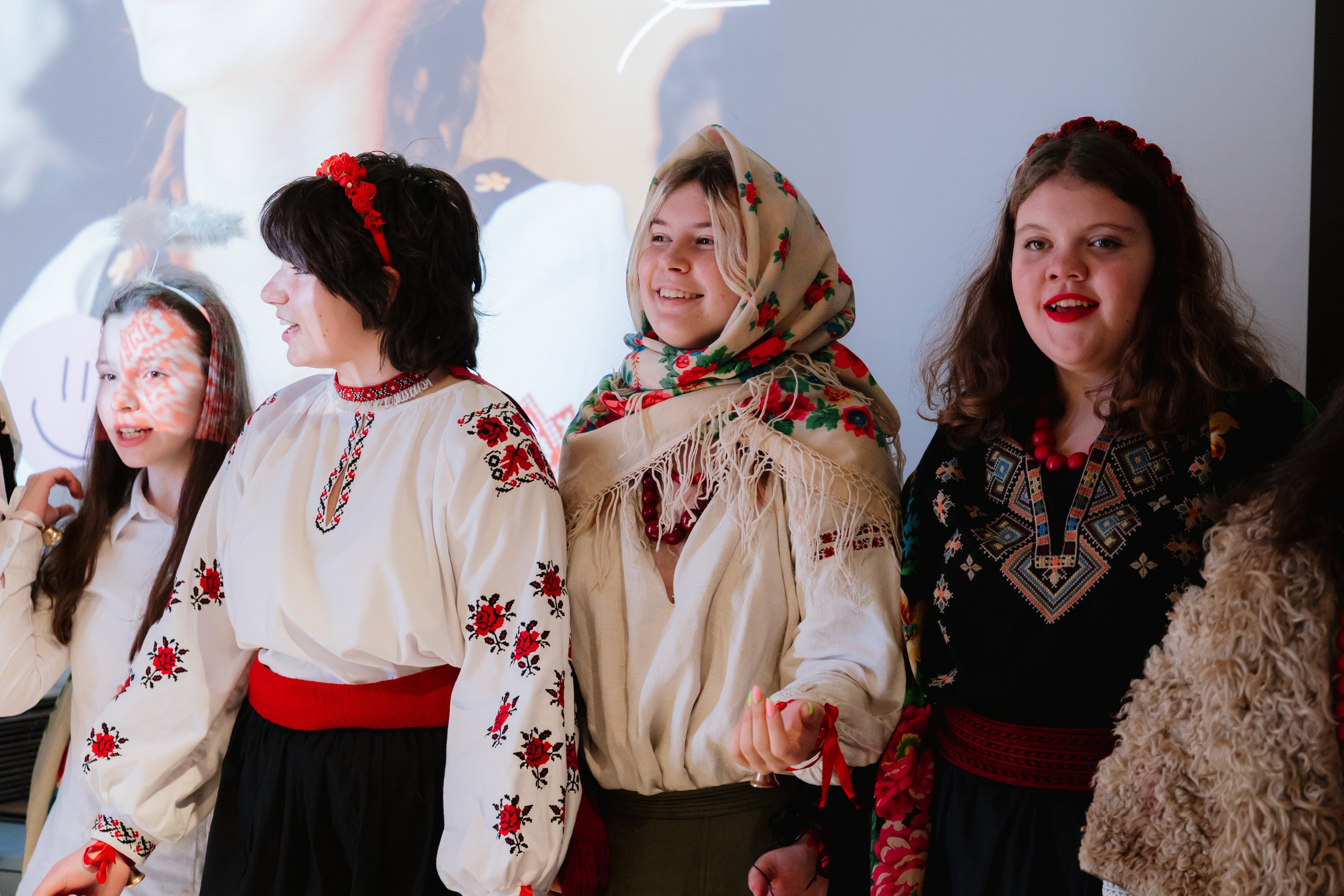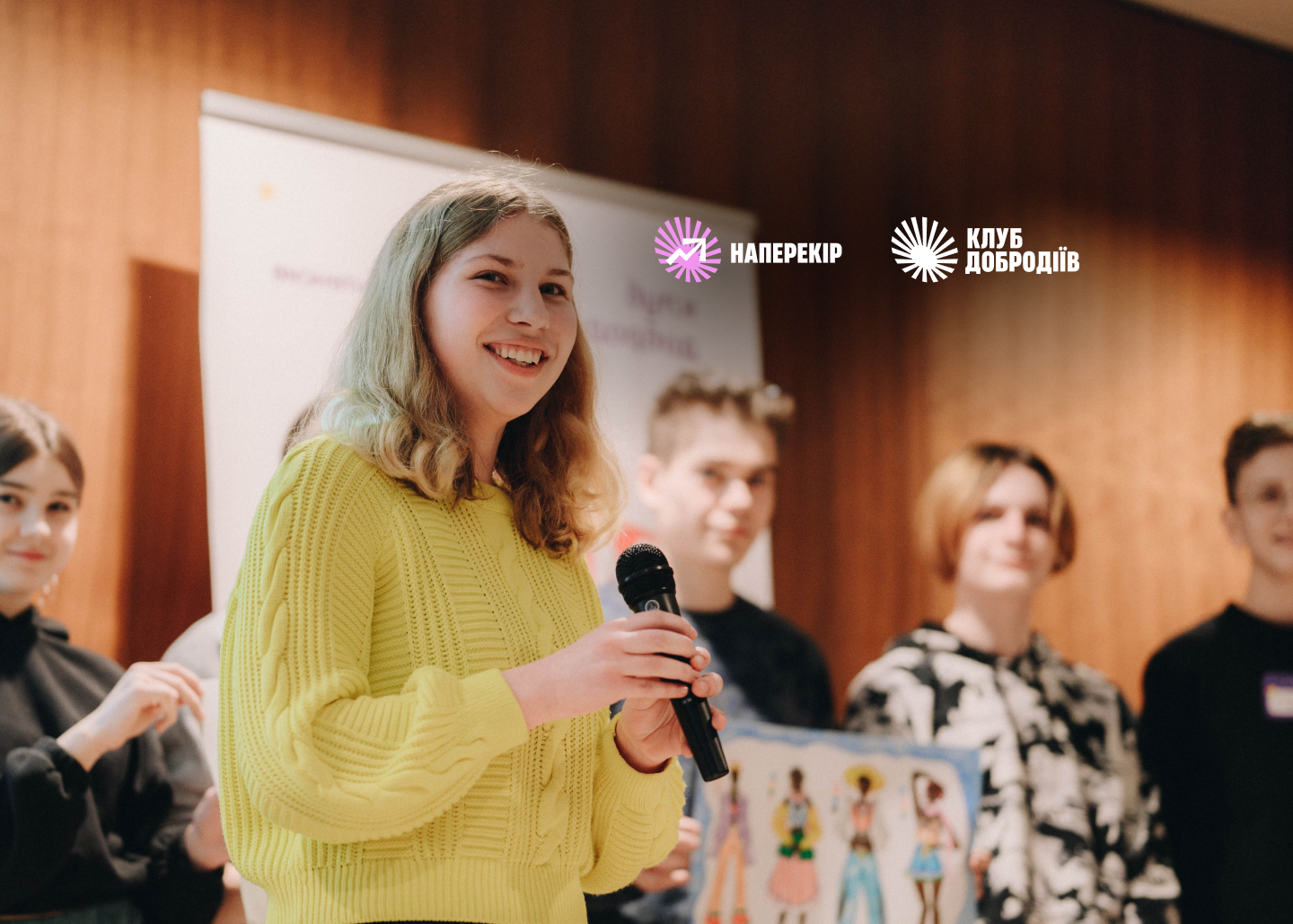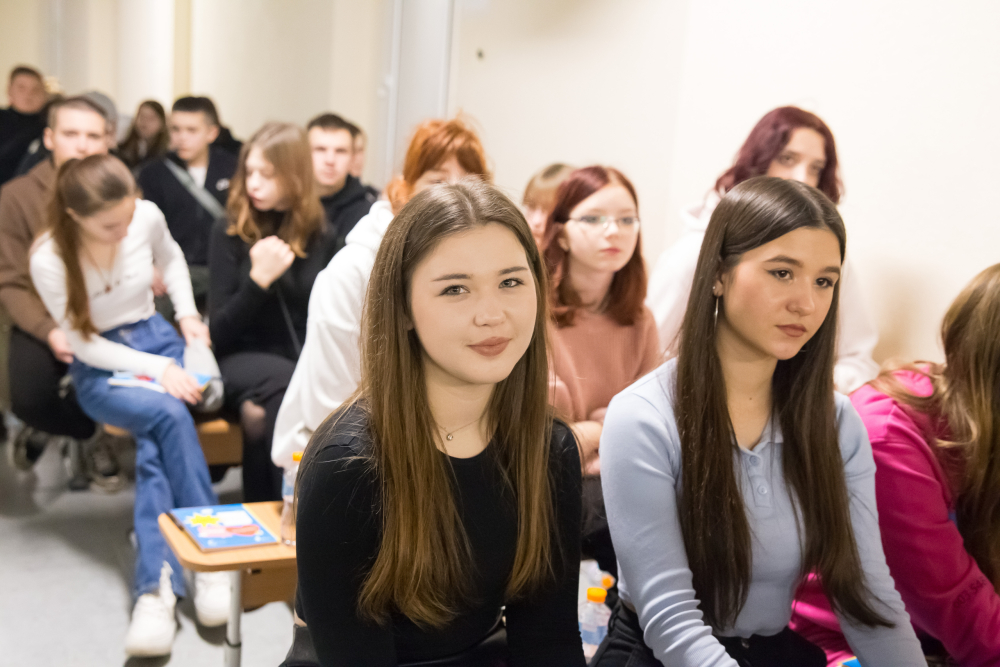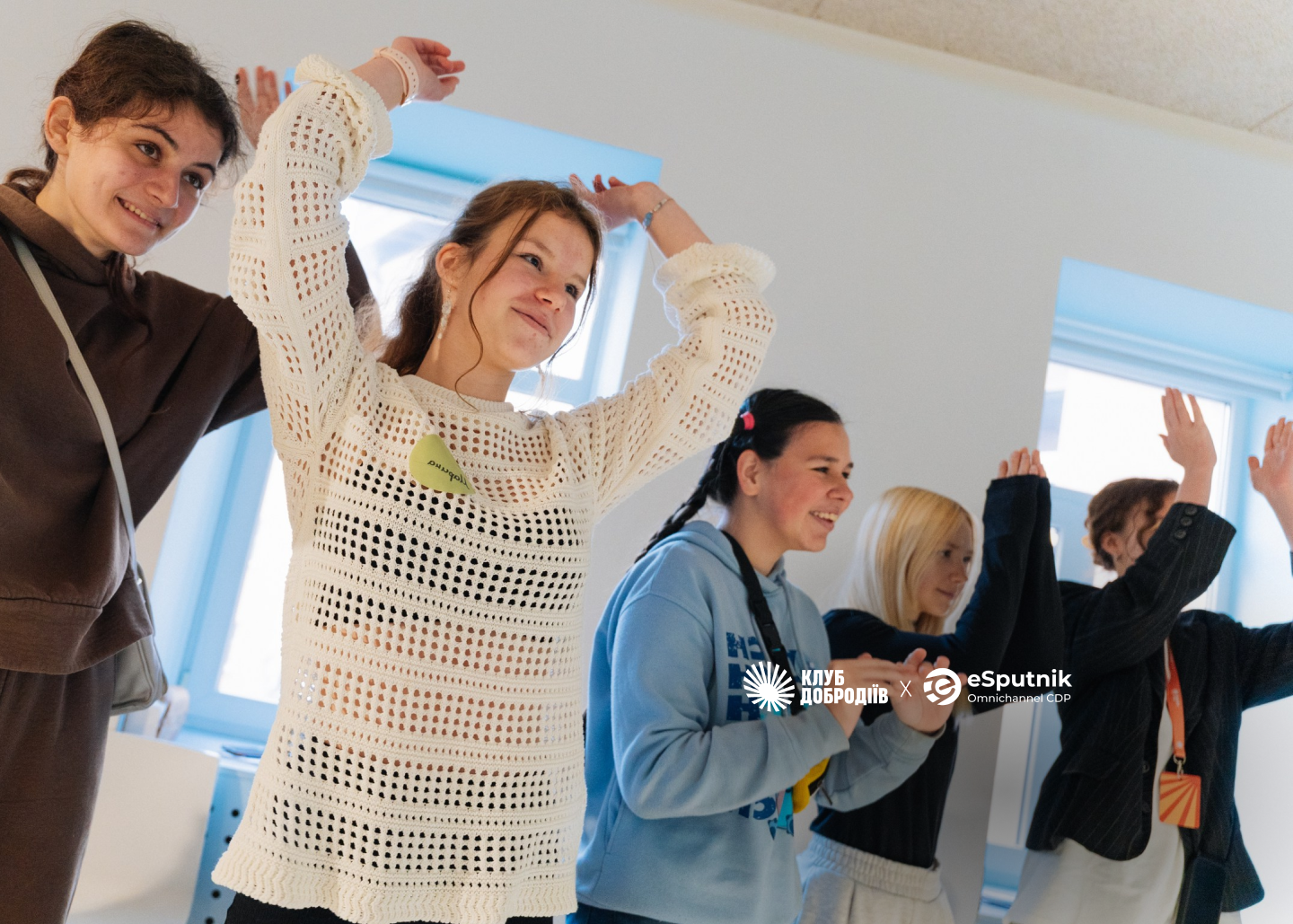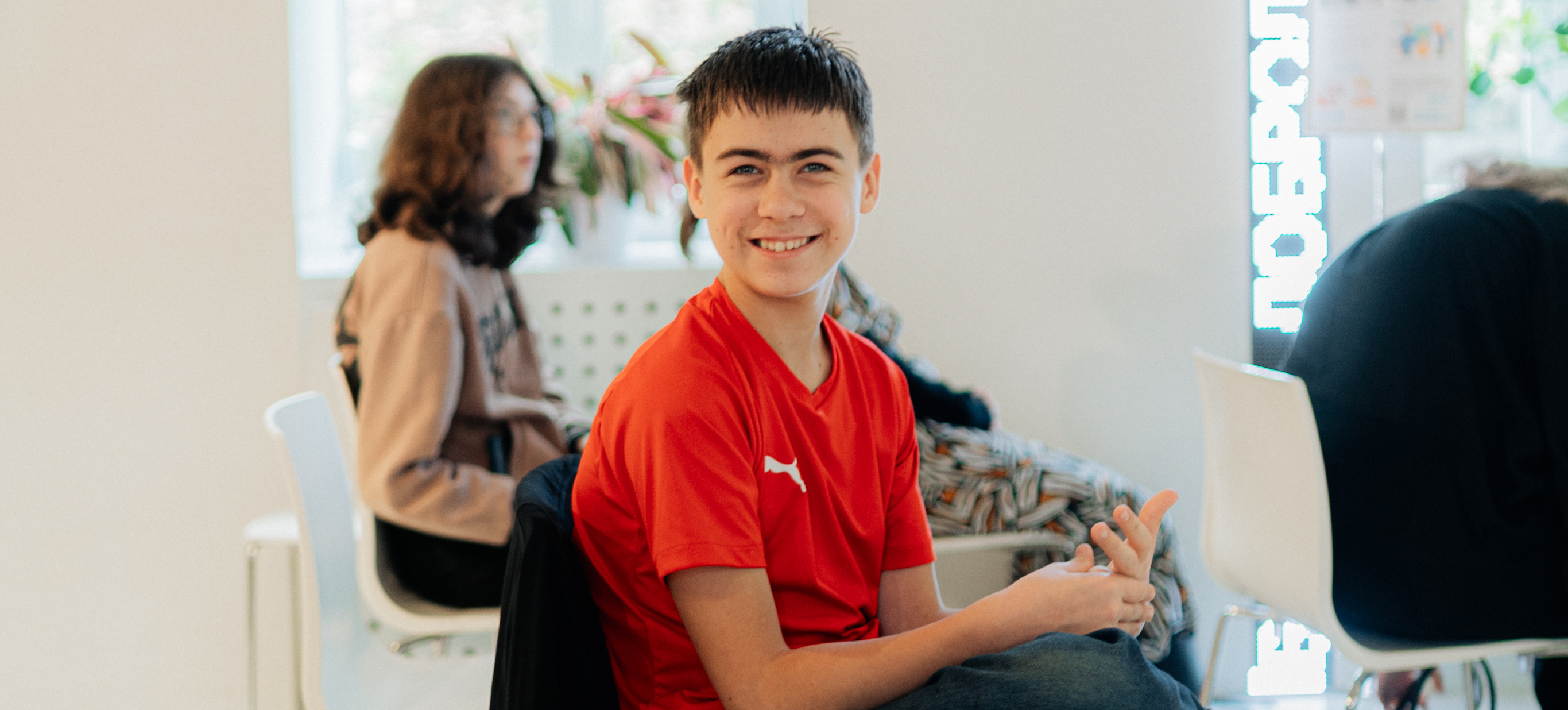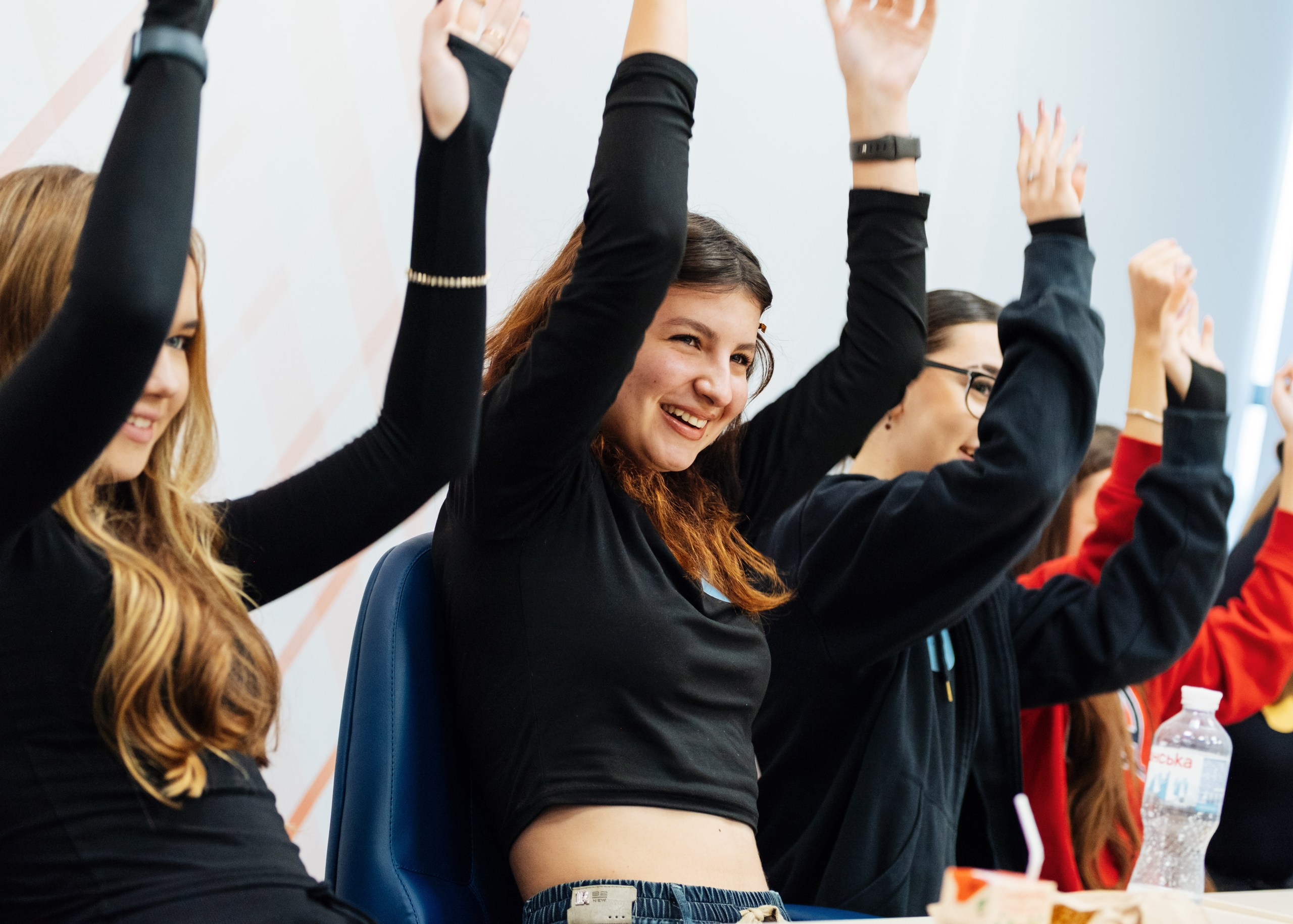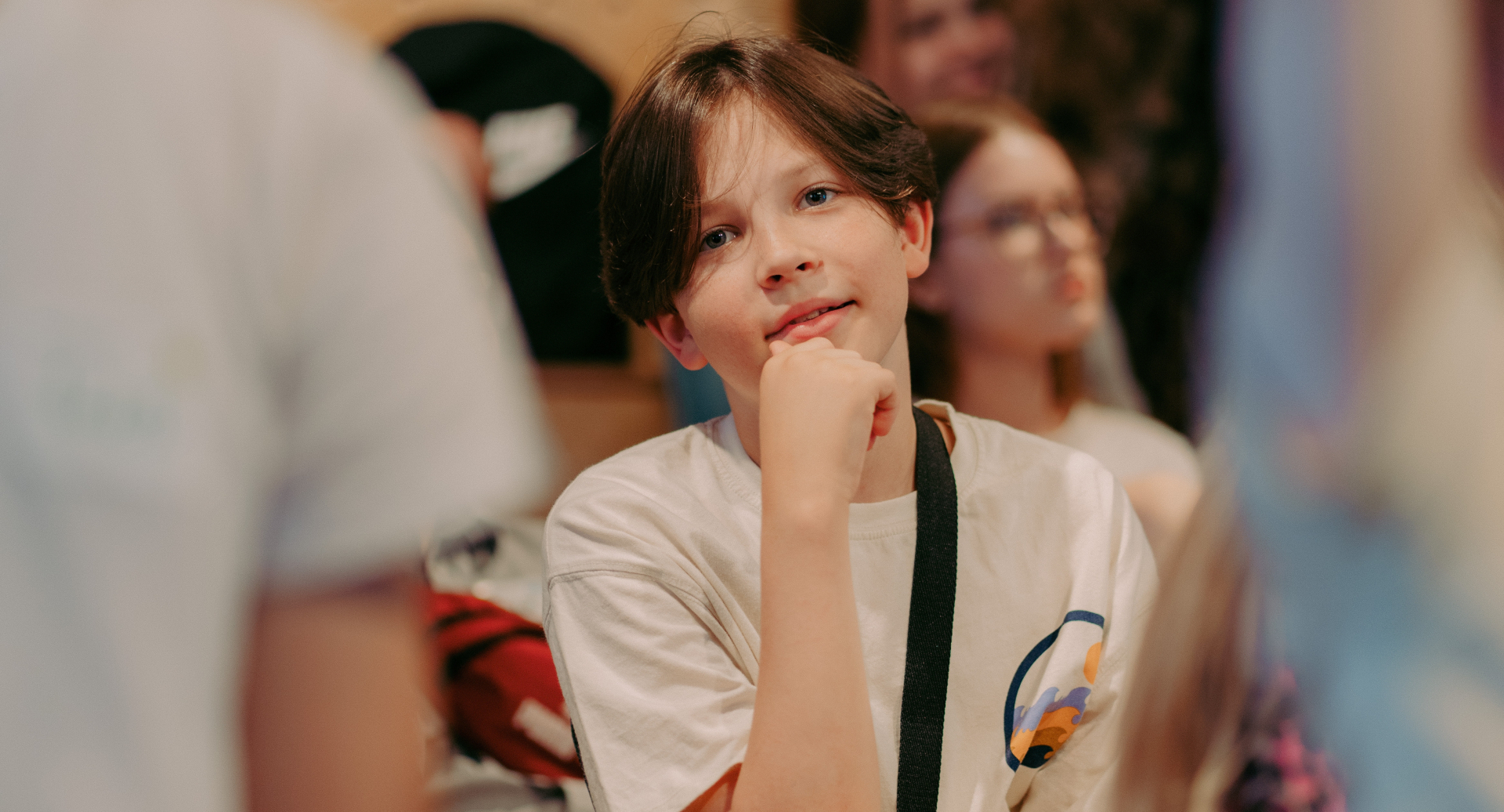
Дякуємо за ваш внесок!
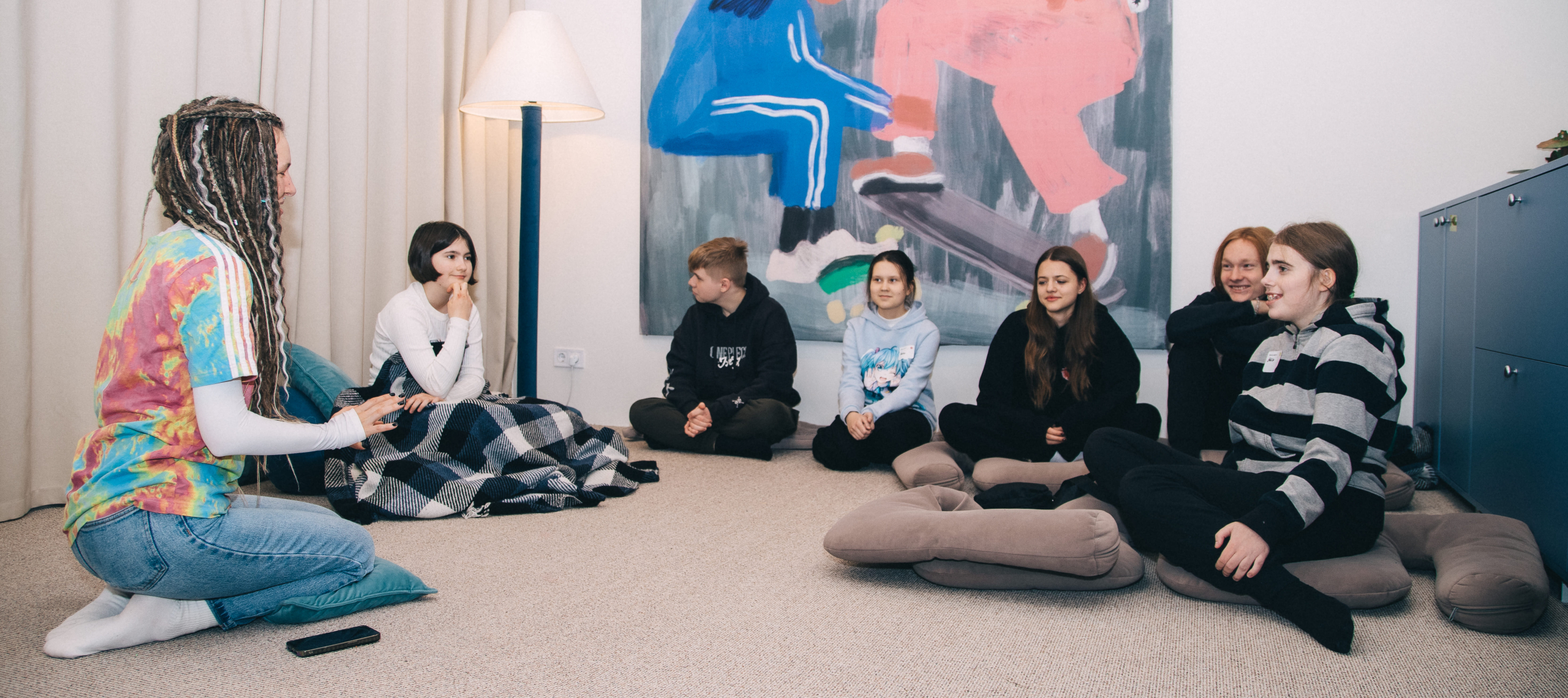
Життєзмінний проєкт: терапевтичні групи для підлітків
Підлітковий вік – не просто перехід від дитинства до дорослого життя. Це період, коли виникає безліч питань: хто я, як жити, що я відчуваю і що правильно саме для мене?
Пошук себе, формування ідентичності, потреба в самостійності – ці процеси завжди були непростими, але сьогодні вони ускладнені війною. Саме тому підлітки, як ніколи, потребують не лише уваги й розуміння, а й конкретних інструментів – психологічних, терапевтичних, практичних.
“Підлітки не хочуть, щоб їм казали, як треба. Найкраще, що ми можемо – створити простір, де вони можуть досліджувати себе, шукати відповіді й формувати власні рішення. Рішення, які народжуються в процесі групової терапії та за підтримки психолога, стають глибшими, особистими, прожитими – і тому набагато стійкішими”, – Марія Тодорчук, засновниця Клубу Добродіїв.
Модель змін Клубу Добродіїв
Одним із найпопулярніших форматів напряму ментального здоров’я підлітків в Клубі Добродіїв є терапевтичні групи — формат групової психотерапії для підлітків 10-17 років.
Під супроводом досвідченого психолога, підлітки досліджують власні емоції, знаходять свої сильні сторони та внутрішні ресурси. Терапевтичні групи не лише допомагають впоратися з тривогою чи страхами, а й формують навички, які залишаються з ними надовго.
“Підлітки тільки вчаться розуміти, що відбувається з їхнім внутрішнім світом та чи є нормальними їхні почуття. У підтримуючій атмосфері групи вони пізнають свої емоції, вчаться проживати тривогу, страх, пізнавати свої ресурси й відчувати внутрішню опору. Групова терапія – це місце, де можна позбутися накопиченого стресу, провини, болю та печалі.” – Наталія Ковальчук, психологиня-супервізорка проєктів Клубу Добродіїв.
Днк проєкту
Терапевтичні групи — це комплексна система підтримки, розроблена з урахуванням потреб підлітків та викликів, з якими вони стикаються. Саме завдяки цьому підходу вони стають фундаментом для тривалих внутрішніх змін. Ми виділили ключові принципи, що формують основу наших груп і роблять їх ефективними:
Жива присутність — жива взаємодія
Усі заняття терапевтичної групи проходять офлайн. Для підлітків, які дорослішають в умовах війни, ковіду та дистанційного навчання, живий контакт є необхідним для формування здорової самооцінки, ідентичності та комунікативних навичок.
Вікова та змістова гнучкість
Програми адаптовані під три вікові категорії: 10–12, 12–14 і 15–17 років. Кожна група працює зі своїм запитом, що відповідає етапу дорослішання. Молодша група досліджує питання дружби та емоцій. Для середнього віку актуальні теми самооцінки, кордонів та довіри. Старші підлітки досліджують свої цінності, говорять про майбутнє та стосунки.
Повна конфіденційність
Групи — це безпечне коло, куди не допускаються знайомі, родичі чи друзі. Це дає можливість учасникам говорити чесно, відкрито й без страху осуду. Те, що відбувається в межах групи, залишається лише там.
Безпека через сталість
Перші три зустрічі присвячені знайомству, формуванню запиту та створенню атмосфери довіри. Після цього група “закривається” і працює у стабільному складі до завершення. Це створює відчуття безпеки, формує довіру та дозволяє глибоко зануритися в процес.
Окремі формати для різних потреб
Клуб Добродіїв враховує унікальність досвіду кожної дитини. Саме тому ми проводимо окремі групи, зокрема для дітей військовослужбовців, щоб дати простір, де можна ділитися тим, що зрозуміє лише той, хто пережив подібне.
Також ми забезпечуємо доступність для підлітків із фізичною інвалідністю: вони можуть долучатися до наявних груп або пройти курс у спеціально сформованому потоці.
Коли підтримка дає результат
Після завершення курсу психологи збира зворотний зв’язок від учасників та їхніх батьків, аналізуючи зміни в емоційному стані, комунікації та загальній динаміці. Саме ці оцінки — найкраще свідчення ефективності терапевтичних груп:
- 94% — відчули покращення психоемоційного стану.
- 75% — відзначили зменшення перепадів настрою та дратівливості.
- 63% — покращили комунікацію в родині та з однолітками.
- 37% — підвищили концентрацію та успішність у навчанні.
Життєзміни підлітків
Іноді зміни видно не одразу — вони проявляються у дрібницях: у тому, як підлітки починають говорити про свій досвід, як ставляться до себе та світу навколо.
- “Я до – тривожна, депресивна, загублена, не уявляла, як можна приймати і любити себе. Я після – частіше відчуваю спокій, гармонію з собою, більше не бачу світ чорно-білим, а життя виявилось приємним”.
- “Коли чула сміх, я думала, що всі сміються з мене. Тепер розумію – це лише мої думки, а люди мають свої справи і теми”.
- “Моя тривога спала, і мені вже не страшно без причин. Я краще висловлюю свої думки і вірю, що моє майбутнє буде добрим”.
- “Тут немає правильних чи неправильних відповідей. Кожен просто може бути собою”.
Ці зміни помічають і ті, хто поруч — батьки. Вони відзначають не лише покращення емоційного стану, а й відкритість та легкість у спілкуванні.
- “Моя донька стала відкритішою, легко заводить друзів. Завжди повертається з занять у гарному настрої. Щиро дякую за вашу роботу!”.
- “Спочатку син не проявляв особливого інтересу й не хотів іти. Але все змінилось, коли він подружився з кимось у групі. Тепер чекає кожної зустрічі з нетерпінням”.
Чесно про виклики
Терапевтичні групи — важливий, але не завжди простий процес. За час роботи ми помітили кілька викликів, з якими стикаємося найчастіше:
Терапія — не про розваги, а про зміни
Це глибока внутрішня робота, під час якої підлітки стикаються зі своїми справжніми емоціями. Іноді на поверхню виходить злість, сором, відчай або відчуття безпорадності — це природний етап, який може викликати опір, але саме такі моменти стають точками зростання.
Цінність відкривається в процесі
Терапія працює лише тоді, коли підліток сам цього хоче. Не батьки, не школа, не психолог — а сам учасник має відчути внутрішню готовність зробити крок назустріч собі. Буває, що батьки наполягають на участі, але без особистої мотивації ефект буде мінімальним. Ми розуміємо, що почати найстрашніше, адже нове — завжди лякає. Але саме за першим кроком відкривається шлях, на якому підліток починає чути себе й довіряти собі.
Брак фінансування
Попит на терапевтичні групи зростає — ми отримуємо нові запити від родин, які шукають підтримку для своїх дітей. Але кожна нова група — це робота команди, психологів, оренда простору, матеріали для занять. На жаль, можливостей бракує, і ми не завжди можемо відповісти на всі звернення. Підлітки чекають, а ми шукаємо ресурси, щоб відкрити нові групи й підтримати кожного, хто цього потребує. Бо для когось ця терапія може стати рятівною.
“Терапевтичні групи – найбільш затребуваний формат серед усіх наших активностей. Маємо стабільно 4 потоки на рік. Часто психологи направляють підлітків після індивідуальної терапії саме до нас – бо група є місточком між кабінетом і реальним життям”, – Софія Коханська, операційна директорка Місця Сили.
Станьте частиною змін
Кожна терапевтична група — це шанс для підлітка знайти опору в собі, навчитися довіряти, прожити складні емоції та зробити крок до внутрішньої стабільності й впевненості.
І саме ваша допомога дозволяє нам відкривати нові групи для тих, хто цього потребує найбільше. Підтримайте терапевтичні групи – оформіть щомісячну підписку на донат та станьте силою Місця Сили!



